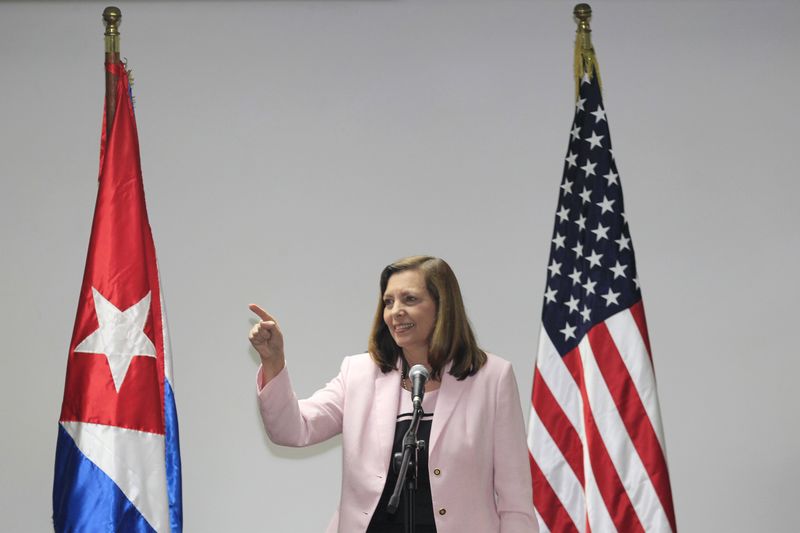By Daniel Trotta
HAVANA (Reuters) - The United States and Cuba clashed over immigration policy on Wednesday at the first session of high-level talks seeking to restore diplomatic ties between the Cold War adversaries.
Despite Havana's objections, the Americans vowed to continue granting Cuban immigrants special status that allows nearly every Cuban reaching U.S. soil to remain in the country, while nationals of other countries are deported if they arrive under similar circumstances.
The talks will continue on Thursday with the two sides set to discuss restoring diplomatic relations and eventually opening up full trade and travel ties.
The two days of meetings are the first since U.S. President Barack Obama and his Cuban counterpart Raul Castro announced on Dec. 17 they had reached a historic breakthrough after 18 months of secret negotiations.
"We explained to the Cuban government that our government is completely committed to upholding the Cuban Adjustment Act, that the sets of migration-related policies that are colloquially known as wet foot/dry foot very much remain in effect," State Department official Alex Lee, who led the immigration talks for the Americans, told reporters.
Under that policy, Cubans who are stopped by U.S. law-enforcement officials at sea are returned to Cuba, while those who step foot in the country are allowed to stay.
The leader of the Cuban side, foreign ministry official Josefina Vidal, reiterated Cuba's opposition to U.S. immigration law and policy, telling reporters the unique treatment promotes illegal immigration, people-trafficking and dangerous journeys across the Florida Straits on flimsy vessels.
Obama has set the United States on a path toward removing economic sanctions and a 53-year-old trade embargo against the communist-ruled island.
"We are ending a policy that was long past its expiration date. When what you're doing doesn't work for 50 years, it's time to try something new," he told Congress in his annual State of the Union address on Tuesday.
He also urged Congress to start work on ending the embargo but critics at home say Obama first needs to win concessions on Cuban political prisoners and democratic rights, the claims of U.S. citizens whose property was nationalized after Cuba's 1959 revolution, and U.S. fugitives who have been given asylum in Cuba.

The U.S. delegation is led by Roberta Jacobson, the top U.S. diplomat for Latin America, who did not participate in the immigration discussion. When she landed in Havana on Wednesday, she became the first U.S. assistant secretary of state to visit Cuba in 38 years.